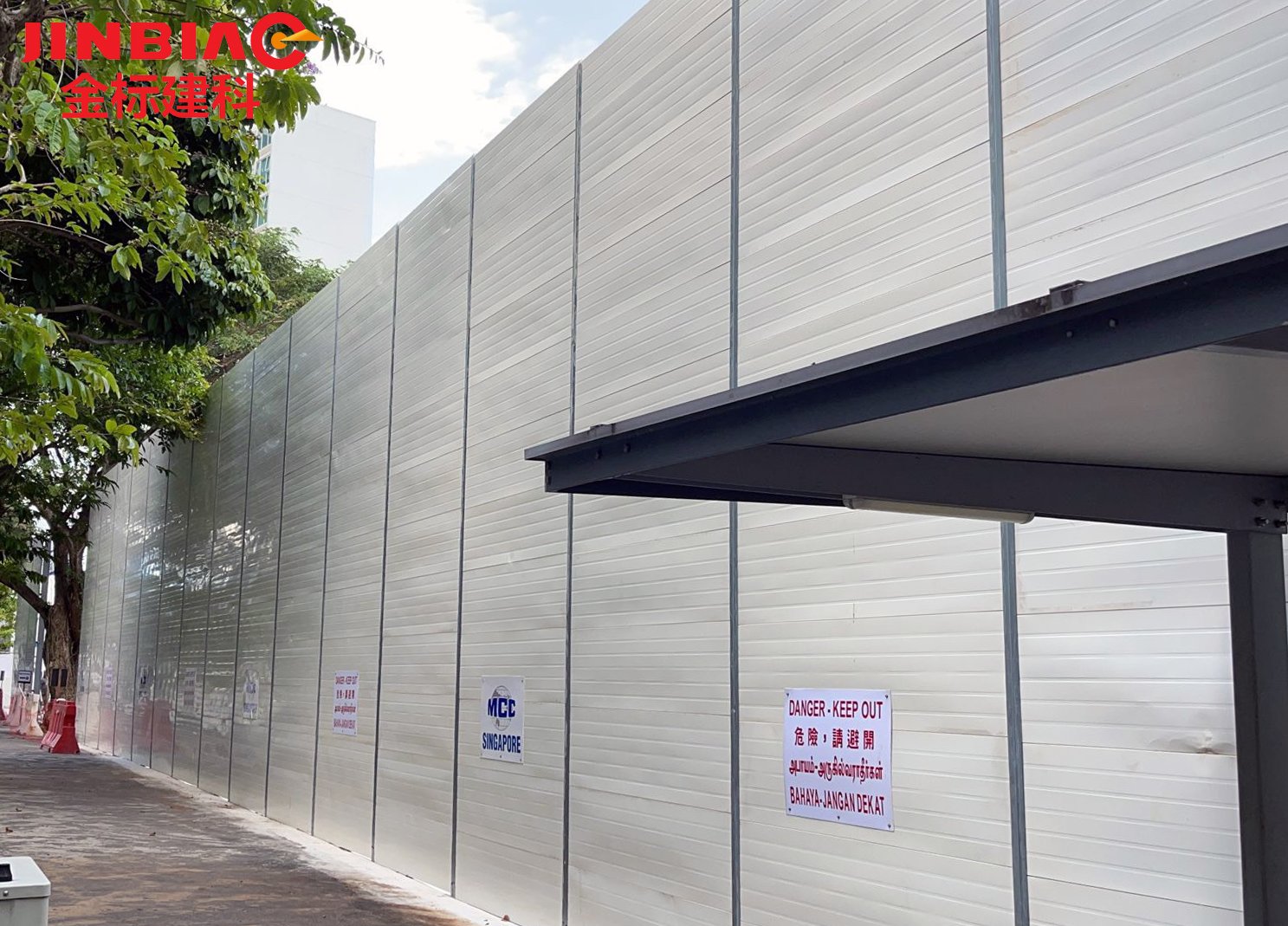
Portable noise barriers are an essential tool in reducing noise pollution in a variety of settings. These barriers can be used in construction sites, highways, and even residential areas to protect people from excessive noise. The effectiveness of these barriers depends on the materials used to construct them.
The materials used to create portable noise barriers must meet certain criteria to be effective. They must be durable, lightweight, and able to withstand harsh weather conditions. Additionally, these materials must have sound-absorbing properties to reduce noise levels. There are several different materials commonly used in the construction of portable noise barriers, including concrete, steel, and plastic. Each material has its own unique properties that make it suitable for specific applications.
Understanding Noise Barriers
Noise barriers are physical structures designed to reduce the amount of noise that reaches a certain area. They are commonly used to reduce the impact of noise pollution on residential, commercial, and industrial areas. Noise barriers can be permanent or temporary, and they can be made from a variety of materials.
The effectiveness of a noise barrier depends on several factors, including the height, length, and placement of the barrier. The higher and longer the barrier, the more effective it is at reducing noise. Additionally, the closer the barrier is to the source of the noise, the more effective it is at reducing the noise level.
There are several types of materials that can be used to create effective noise barriers. These include:
- Concrete: Concrete is a common material used for permanent noise barriers. It is durable, long-lasting, and can be designed to match the aesthetic of the surrounding area.
- Steel: Steel noise barriers are also common for permanent installations. They are strong, durable, and can be designed to be aesthetically pleasing.
- Wood: Wood noise barriers are often used for temporary installations. They are lightweight, easy to install, and can be designed to match the surrounding environment.
- Acoustic Panels: Acoustic panels are a type of noise barrier that is made from sound-absorbing materials. They are often used in indoor environments, such as recording studios or concert halls.
Overall, noise barriers are an effective way to reduce the impact of noise pollution on surrounding areas. By understanding the different materials that can be used to create noise barriers, it is possible to choose the most effective solution for a particular situation.
Types of Portable Noise Barriers
Portable noise barriers are an effective solution for reducing noise pollution in various settings. These barriers are designed to block or absorb sound waves, thereby reducing the amount of noise that travels through them. There are two main types of portable noise barriers: absorptive barriers and reflective barriers.
Absorptive Barriers
Absorptive barriers are designed to absorb sound waves, converting them into heat energy. These barriers are typically made of materials such as fibreglass, mineral wool, or foam. When sound waves hit the barrier, they are absorbed by the material, reducing the amount of noise that passes through. Absorptive barriers are particularly effective at reducing high-frequency noise, such as traffic noise.
Reflective Barriers
Reflective barriers are designed to reflect sound waves, redirecting them away from the source of the noise. These barriers are typically made of materials such as steel, aluminium, or concrete. When sound waves hit the barrier, they bounce off and are redirected away from the area. Reflective barriers are particularly effective at reducing low-frequency noise, such as industrial noise.
Both absorptive and reflective barriers have their advantages and disadvantages. Absorptive barriers are generally more effective at reducing noise levels, but they may not be as durable as reflective barriers. Reflective barriers, on the other hand, are more durable but may not be as effective at reducing noise levels in certain situations.
In addition to the type of material used, the effectiveness of a portable noise barrier also depends on its design and installation. It’s important to choose the right type of barrier for the specific noise problem and to ensure that it is installed correctly to maximise its effectiveness.
Hebei Jinbiao is a leading company in Noise Barrier products and Fencing products in Singapore. We guarantee to provide you with the most high-quality Sound Barrier and Fencing products along with our dedicated assistance. Do not hesitate to contact us. We are looking forward to helping you solve your noise issues, safety issues and protecting you from noise pollution as well as ensuring your safety.
